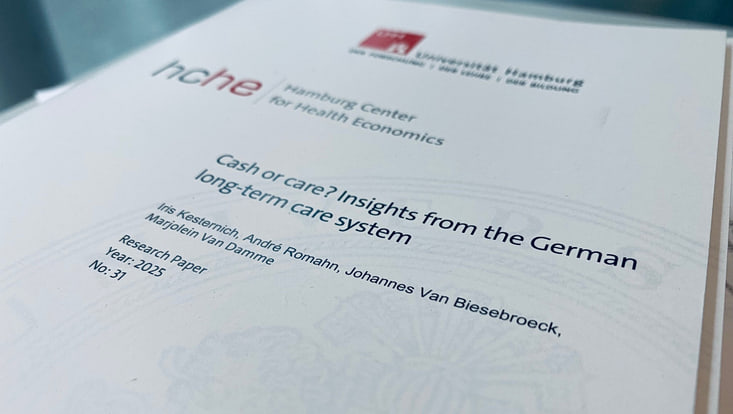
Cash or care? New research paper on long-term careHCHE Research Paper No. 31 published
24 June 2025, by Hannes Rathjen

Photo: HCHE/Rathjen
The German universal long-term care (LTC) insurance system offers beneficiaries the choice between informal care at home, outpatient care at home, or care in a nursing home. In the case of informal care, long-term care insurance pays out care allowances, which the care recipients can decide how to use. The optimal level of this cash benefit depends on how it influences the care recipients' decisions between informal care and the other options. Furthermore, changes in payouts can also lead to changes in the pricing decisions of professional providers and influence which population groups benefit most from long-term care insurance.
To investigate the effects of care allowances on the welfare of those in need of care and public spending, Prof. Dr. Iris Kesternich (HCHE / University of Hamburg / KU LEuven) and her team have created a decision model for the decisions of people in need of care based on nursing care statistics and the microcensus. The results show strong heterogeneity in patient preferences for the three different care options: informal care, outpatient care and care in a nursing home. A counterfactual analysis predicts that abolishing the cash subsidy would result in a decline in patient welfare that would far overweigh the savings in public expenditure. The analysis suggests that many countries could benefit from introducing a cash subsidy option for LTC.
The full Research Paper can be found here.


